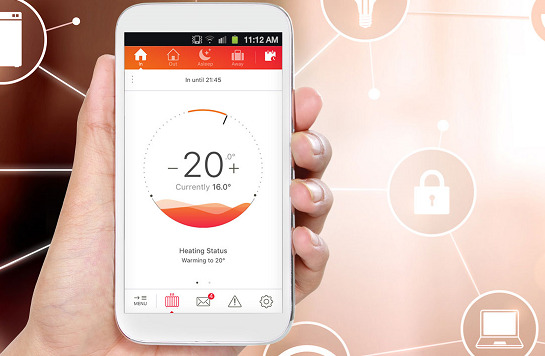Shell is to use machine learning for the management of hybrid domestic heat pumps in a new partnership with PassivSystems.
The B-Snug system for domestic customers uses machine learning to continuously monitor the temperature in the home and analyses weather forecasts to automatically switch between an air source heat pump and traditional boiler.
The technology platform is designed so that the heat pump is prioritised whenever possible, PassivSystems said.
Due to the prioritisation of heat from an electric source, the initiative is set to reduce carbon emissions from domestic properties.
Colin Calder, CEO at PassivSystems, said there is a “clear message” from the Committee on Climate Change (CCC) that homes must be decarbonised for net zero and that the launch of the hybrid heating system directly contributes to the CCC’s goal of deploying 10 million hybrids by 2035.
B-Snug is to be delivered as one of Passiv’s Advanced Smart Control services and marks Shell’s first foray into electrification of heating.
The system is fully compliant with the Domestic Renewable Heat Incentive (DRHI) and takes advantage of the ‘assignment of rights’ allowing homeowners to transfer the DRHI payments to B-Snug as the investor.
Homeowners taking part in the initiative are charged £1,610 for the supply and installation of the heat pump and smart controls, although this can be offset by government funding, plus a monthly fee of £9.90 for 7 years.
Brian Davis, vice president of energy solutions at Shell, said PassivSystems is a “great partner” for the launch of Shell’s first hybrid heating system.
“By leveraging Passiv’s technology and experience we can now offer a more cost effective and cleaner heating solution to our customers.”
In March, the government unveiled plans for a Future Homes Standard, which would ensure all new build homes were fitted with low or carbon heating from 2025.
Whilst there has been concern over the scale of the challenge for decarbonising heat, as well as the potential impacts on the grid, the use of domestic heating for flexibility has been lauded by Northern Powergrid in its customer flexibility plan, as well as in research published by OVO and Imperial College London.





